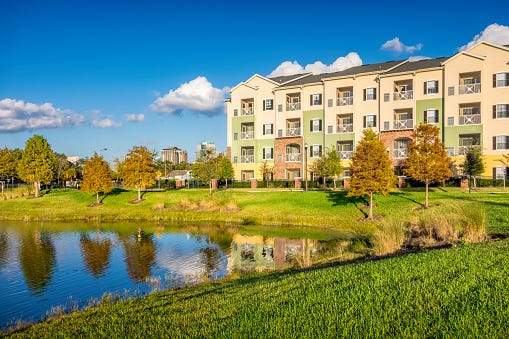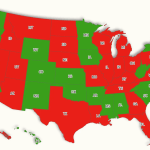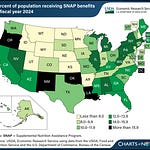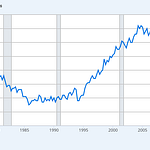“A condo deconversion is a real estate transaction in which a savvy investor acquires an entire condo building through a bulk sale to turn into rentals. This investment trend has been seen in Florida and California for a number of years and is picking up steam in other coastal metros and even in the Midwest.” Forbes, July 22, 2019
It is startling for someone like me, who has never been a part of a for-profit business, to see the word “savvy” used to describe a real estate investor who buys a condominium complex with the sole purpose to change the structure from home ownership to rental, so the investor can make oodles of money. While the basic idea of investment is to earn a high return, this particular scheme can throw people out of homes they own again their will. A savvy investment, indeed.
A couple in Florida, the Fellmans, were startled at this investor scheme, too, and have filed a lawsuit against the company, Strategic Properties of North America, which bought their 176 unit condominium complex—the Fellmans' are the last holdout to agree to the termination of their condominium agreement. Although they lost in the first round of litigation, the case is currently under appeal.
This specific story is a bit different, though, because when the Fellmans bought their unit in 1992, their condo agreement required approval of 100% of the residents to terminate, and that agreement remained on file with the county. After Strategic Properties, took control of the condominium’s board of directors with its purchase of 175 out of 176 units, it voted to change the threshold to 80% of unit owners required to agree to termination. This percentage mirrored a Florida state law enacted after the Fellmans purchased their unit, that now allows for only 80% of unit owners to approve of a condo termination agreement, as long as there is less than 5% opposition.
This is a complicated scenario, but worth trying to understand because of today’s housing market, and the important role condominiums play in letting younger, first-time buyers access the home ownership market. Condos can be less expensive, and the fees paid each month to live a maintenance-free lifestyle appeal to owners of all ages. And in the case of the Fellmans, ownership of a condominium was part of their long-term financial plan—they are currently renting it and had planned to move back in at retirement.
Here’s what they said about the deconversion process:
“You can’t take it, it’s not yours, it’s ours,” Mr. Fellman said. “And we don’t want to sell it, we have plans for it ourselves. We think that part of ownership is not only the right to buy it and use it and enjoy it, but also not to sell it if you don’t want to.”
According to an article in Stateline, an initiative of the Pew Charitable Trusts, investors purchased, on average, one quarter of all single-family homes sold in 2021, and this number has risen to one third or more in states like Arizona, Georgia, Texas and Nevada. The corporate investors don’t turn around and sell these properties to individual buyers, they rent them at exorbitant rates, and at the same time, drastically lower the inventory of properties available for individuals to purchase. Think about that statistic: corporate investors purchased between 25% to 33% of the single family homes in the United States in one year.
The corporate investor boom into the single-family housing market started during the Great Recession in 2008, when investors scooped up homes abandoned when owners defaulted on their payments. And the condo deconversion process is just another way for large, corporate investors to intrude on the housing market, raise rents on the properties it owns, and squeeze individuals in both the rental and ownership of properties. The result is that the growing trend of condominium deconverions collides with the already tight housing market to prevent a larger percentage of individual homebuyers, whether they want to purchase condominiums or single-family homes, from enjoying the economic benefits of homeownership.
A University of Illinois professor, practicing attorney and an expert in housing matters, Evan McKenzie, tracks the practice, and calls deconversion “a private form of eminent domain.” Although Mckenzie and others point out the positive side of deconversions, particularly with older condominium buildings: Sometimes the condominium board has not put aside enough funds for repairs, and can be reluctant to ask tenants to contribute (or are met with resistance from the unit owners). The needed repairs, which can involve safety issues, are backlogged to a point where a board might have no choice but to sell the building and let deeper pockets invest in updating it. In these cases, it can be a win for the current owners—they supposedly receive fair market value for their condominium unit, don’t have to chip in extra money for repairs and can move on.
As the world saw in the 2021 Surfside condominium collapse near Miami, Florida, where 98 people died, condominium boards have a huge responsibility to not only care for the building, but to bring unit owners onboard with their money, including extra assessments as necessary to make needed repairs. To be clear, the investigation of the Surfside condo collapse is not finished (expected date the fall of 2024 to complete a final report), and no one has determined yet, whether it was failure to maintain the building that caused the collapse.
Ironically, the United States pushes home ownership as a central tenant of the “American Dream”, yet this convergence of currently legal, business forces makes it much more difficult for the average American to purchase the roof over their heads.
———————————————————————————
I’d love to hear what you think about this issue! Do you own a condominium? Are you satisfied with how your condominium board manages the building? Have you been asked to contribute extra assessments for repairs? Let me know in the Comment Section below.
As always, I appreciate your interest and thoughtful ideas that make our Crime and Punishment community a welcoming space to visit and chat. There’s no time like the present to become a free or paid subscriber…and there’s no time like the New Year to Upgrade your free subscription to paid — it’s easy, and will allow me to continue and expand Crime and Punishment. Thanks in advance for your support!












